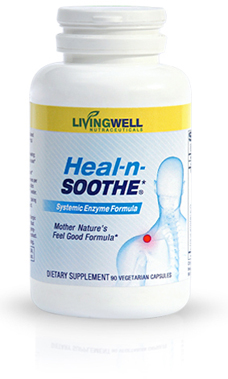… Not When You Have These 7 Symptoms!
 If you’re feeling under the weather — stuffy nose, cough, fever, aches and pains — should you hit the gym or are you better of hitting the couch? And what about if you’re struggling with a chronic or more serious illness — not just a simple cold?
If you’re feeling under the weather — stuffy nose, cough, fever, aches and pains — should you hit the gym or are you better of hitting the couch? And what about if you’re struggling with a chronic or more serious illness — not just a simple cold?
A general rule of thumb to follow is this: listen to your body. If you’re exhausted and feel like a nap would serve you better than a work out, you should pay attention and slow down. After all, fighting off an illness of any kind takes energy, which means you shouldn’t try to overdo it and may need to give your body a break.
That said, there are times when exercising while sick is perfectly fine, and even preferable. If you do exercise while sick, keep in mind that you should take it a little easier than normal and not push yourself too hard (and, of course, if you’ve got a contagious illness, skip sharing your germs at the gym and opt for solo exercise — like a brisk walk — instead).
Here we’ve outlined some simple guidelines to follow when deciding whether you should exercise while sick.
You CAN Exercise With These Illnesses …
- Symptoms Above Your Neck: Generally, if this describes your symptoms, some exercise is fine. This includes:
- Runny nose
- Nasal congestion
- Sneezing
- Sore throat
- Headache
- Cancer: The advice to rest as much as possible during cancer treatment is outdated. The most recent advice states that cancer patients should get 2.5 hours of moderate-intensity activity a week, which can offer benefits such as reduced fatigue, stress and anxiety, and benefits to your bones, heart, muscle strength, sleep, appetite, range of movement and more. There’s also evidence that cancer patients who exercise recover better and reduce their risk of certain cancers coming back.[i]
- Joint Pain and Back Pain: Exercising is beneficial for joint and back pain relief, and can help strengthen supportive muscles and restore flexibility.
- Irritable Bowel Syndrome (IBS): If you struggle with IBS symptoms like cramps, bloating, diarrhea, or constipation, there is evidence that regular exercise can help to relieve them. [ii]
- Chronic Obstructive Pulmonary Disease (COPD): Regular exercise, especially aerobic exercise, can help improve your circulation so you’re better able to use oxygen, lessen COPD symptoms, increase your energy levels and endurance, strengthen your heart and more.
7 Symptoms You Should NOT Exercise With …
There are times when you’re better off skipping your workout entirely, and this includes:
Symptoms Below Your Neck: As a general rule, if you have body-wide symptoms that may signal a more severe flu or viral infection, rest is probably your best option. This includes symptoms such as:
- Fever (exercise will raise your body temperature even higher)
- Coughing
- Fatigue
- Widespread body and muscle aches
- Chest congestion
- Upset stomach and/or stomach cramps
- Vomiting
Exercising with these symptoms is not a good idea, as there’s evidence that over-exertion may make these symptoms worse and cause you to be sick, longer. There are also reports that heavy exertion when you have a fever can cause viruses to spread and lead to long-lasting symptoms such as fatigue, joint pain, and reduced athletic performance.[iii]
What Can You do to Help Avoid Getting Sick?
With cold and flu season upon us, now is an essential time optimize your immune system to avoid illnesses that threaten to sideline your workouts and your daily routine. You’re probably well aware of the importance of eating well, exercising and getting proper sleep to boost your immune function, but do you also know the importance of proteolytic enzymes?
 Proteolytic enzymes are produced naturally by your pancreas and are used by your body to “eat up” scar tissue, cleanse toxins from your blood, fight viruses and improve your immune system, so you’re likely to get sick less often. Unfortunately, your body stops producing optimal amounts of proteolytic enzymes sometime in your late 20s, which is why taking a proteolytic enzyme supplement is a very smart move, especially if you’re in your 40s and beyond.
Proteolytic enzymes are produced naturally by your pancreas and are used by your body to “eat up” scar tissue, cleanse toxins from your blood, fight viruses and improve your immune system, so you’re likely to get sick less often. Unfortunately, your body stops producing optimal amounts of proteolytic enzymes sometime in your late 20s, which is why taking a proteolytic enzyme supplement is a very smart move, especially if you’re in your 40s and beyond.
Heal-n-Soothe is our top-recommended solution, providing you pure and powerful proteolytic enzymes … along with the 11 OTHER most powerful and natural anti-inflammatories to give your health a boost.

